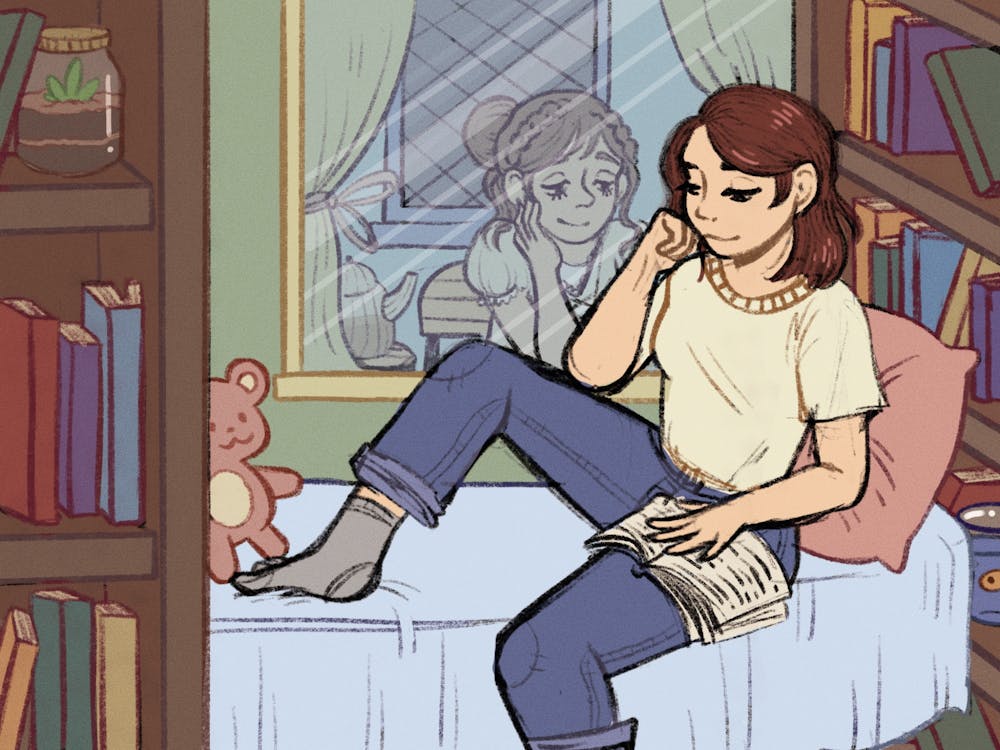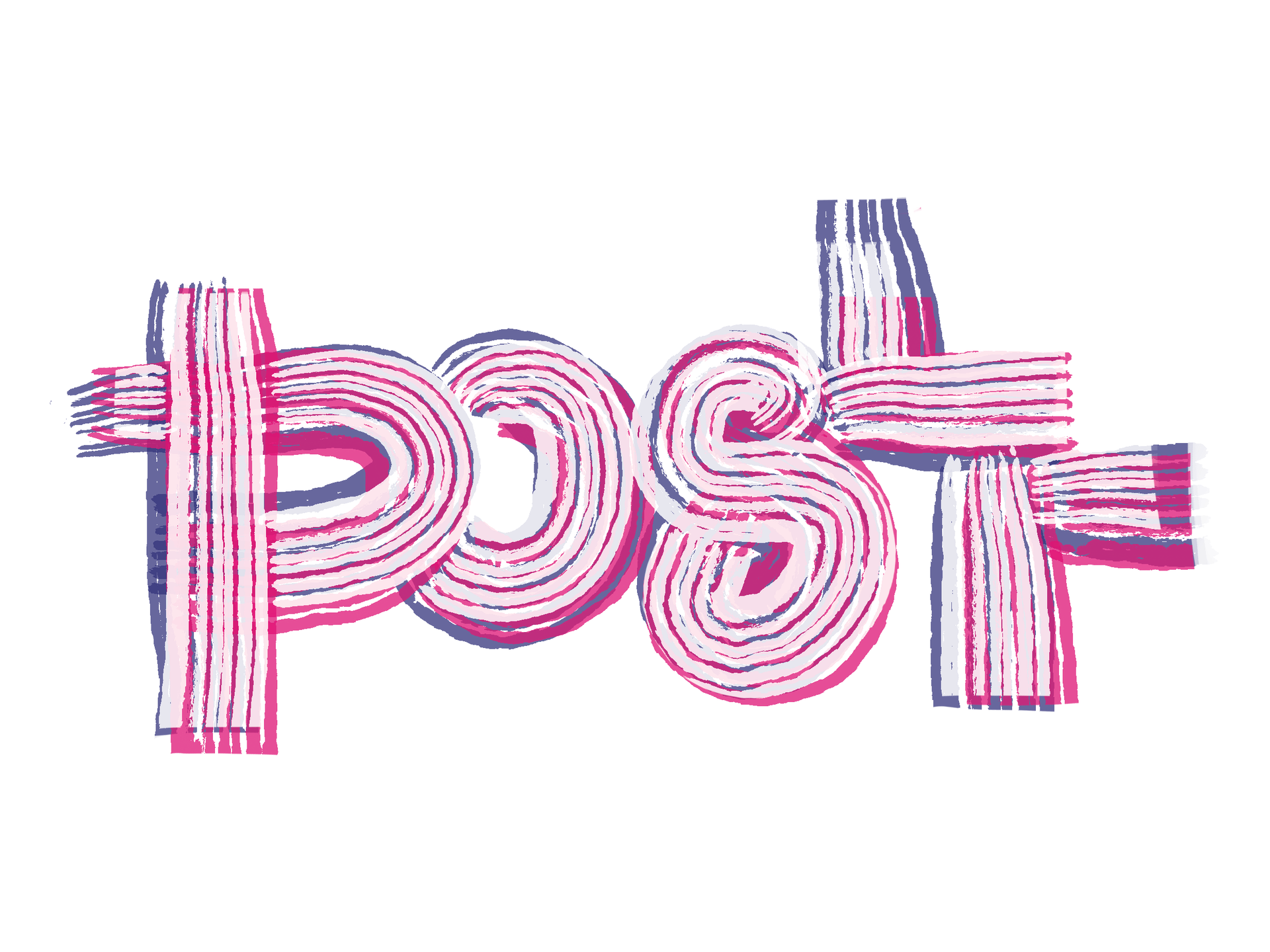I was always an avid daydreamer. I imagined stories for each cloud that drifted past while my little sister stomped around, demanding that I play with her. I barely heard her, barely felt the dampness of the grass pressing into my hair: I was deep in a cloud-inspired imaginary world. For me, reality was simply a boring plotline I quickly dismissed in favor of absurd once-upon-a-times.
As I grew older—and dorkier—I began to read. In books, I discovered the perfect daydreaming outlet. Picture me: a scrawny seven-year-old curled up in the furthest corner of the public library with my bike helmet and a battered copy of A Little Princess in hand. In my mind, though, I was “curled up in a window-seat” of Miss Minchin’s School for Girls in London. I was wearing a petticoat and a “frock the color of a rose.” I should look like a “rose-colored butterfly,” or even a “pale pink fairy.” And in this imaginary world of lovely girls who told fantastical stories in delicate British accents, I belonged.
I discarded realistic fiction and the dangerously practical realm of nonfiction in favor of canonical, Victorian-era fiction. More specifically, I discovered Jane Austen. In her writing, I could experience adventure, love, risk—or at least risk to the extent that women could experience in an Austen novel—from the comfort of my beanbag chair. I met lovely women who lived in big houses where demure drama filled each drawing-room. This was a world where a whalebone corset might dig into my ribs so hard I almost couldn’t breathe: the perfect tightness so that, when the first attractive man walks into the room, I could swoon bashfully into his arms. I would look past the underlying misogyny of this whole situation—and his awful sideburns—when he said, “You have bewitched me, body and soul, Elizabeth Bennett.”
By contrast, my real life wasn’t tied up in nearly so pretty a bow. My classmates laughed at my extensive vocabulary. I spurned recess in favor of the library. After school, I took ballet, dreaming of sweeping waltzes through sprawling ballrooms. I knew it was getting out of hand when my internal monologue took on a drawling Yorkshire accent. I was so desperate for an escape that I even named the particular discomfort that plagued me. Era dysphoria: a distressed state arising from a conflict between the era one feels one belongs, and the era into which one was born.
In other words, I felt like a higher power had drop-kicked me into the wrong century.
I know, it sounds like the desperate attempt of an introverted (and somewhat pretentious) child to escape reality in favor of an idealistic world created largely from her imagination. But in Austen’s world of Persuasion, I became a dashing young heroine whose life amounts to “simplicity and cheerfulness.” Here, I could “love everybody” and be “surrounded by blessings.” I could dance through the “noble hills” and “beautiful verdure” with reckless abandon.
All the while, Jane Austen assured me that real comfort is gained simply from staying at home. I could almost hear her murmuring that the greatest pleasure in life is to “read all day long.” In her eyes, a fondness for reading could become “an education itself.” She even insisted that anyone who fails to enjoy a good book must be “intolerably stupid.” Beyond nursing my superiority complex that stemmed from reading literature neglected by most high school students, Austen’s comments always convinced me that reading was a worthy substitute for real life experience. Reading about extravagant balls where everyone understood that “to be fond of dancing was a certain step towards falling in love” was preferable to stepping on some silly football boy’s toes at the prom. Reading about dramatic arguments where each character held “inconceivable resentments” was certainly preferable to arguing with my own family members. And reading Mr. Knightly’s confession: “If I loved you less, I might be able to talk about it more” was as good as—if not superior to—hearing my own declaration of love. The second-hand embarrassment of a “declaration of sentiments” was enough to persuade sixth-grade me that reading about love was quite enough for me, thank you very much.
But, as nice as it is to escape from my own claustrophobic mind, I now have to scrutinize the world into which I escape. It’s tempting to sink into a novel where life is nice and controlled, and the ending to every story gets wrapped in a neat little bow (and usually, when it comes to Austen, a wedding).
If it were up to me, I would let her beautiful words wash over me, let myself be transported to her idealistic world that is free from “guilt and misery.” But, of course, to read Austen actively, one must consider the classism woven throughout the beginning of each novel, when Austen inevitably mentions how many pounds each character earns per year. The obsession with class permeates each of her works, especially evident in the invisible servants who blend into the background, only appearing when there is tea to be served or a fire to be stoked. One must consider the innate sexism of the fact that every woman in her novel is obsessed with her own marriageability. The direst fate for a woman was to grow old alone and become a “ridiculous, disagreeable old maid.” Thus, a woman’s value was inexplicably tied up in her marriage prospects. And one must consider the fact that, in the bubble of English gentry within her work, there is never a mention of the ever-present issues of slavery, colonialism, patriarchy, or the rights of women.
The desire to escape, to transcend ordinary life, is universal. To drop away from the mundane realities of day-to-day life, to trade the monotonous for the extraordinary. Take a look at the modern rom-com—or, as I like to call it, the trashy grandchild of Jane Austen’s stories. More likely than not, it features a wealthy gentleman who whisks a young woman away from her boring life to a world of romance and joy and happily ever after. And for some reason, they always end up learning the true meaning of Christmas. Don’t get me wrong; this is a lovely fantasy. We all want to escape every now and then. In my case, however, the escape comes in the form of a novel. I imagine escaping into a story full of grey skies over the English countryside, where I pen a letter to my dear sister asking for the gossip of the town. I lose myself in Mansfield Park the same way others might find themselves lost in the blue light of a sunset while credits roll and Celine Dion sings softly in the background.
But escapism, even if it’s only a few hours’ worth of meet-cute, enemies-to-lovers, kissing-in-the-rain entertainment, doesn’t come without a price. The romantic comedy is a warped version of reality. I mean, it’s very sweet when Ryan Gosling gives Rachel McAdams a smooch in the rain, but it’s mid-January in North Carolina. How isn’t she freezing already? Why don’t their noses ever bump awkwardly when they kiss? And, in the iconic running-through-the-airport-to-confess-your-love scene, where on earth is the TSA? But the issues dive far deeper than these simple Hollywood idealizations. Romantic comedies cast aside the real, gritty (and usually very awkward) parts of life like having conversations about difficult topics. Or sharing a bathroom. Time Magazine’s Eben Harrell affirms that romantic comedies are the root of “common misconceptions” for many couples. When we watch these movies, we internalize false expectations for life and for love. Relationship counselors find that romantic comedies encourage a belief that your partner should “know what you need without you communicating it,” and that soulmates are “predestined.” If we retreat into a world where Ryan Gosling might be waiting around every corner to confess his undying love, we close ourselves off to the tough realities of love and of life.
My mother used to say if you gave me a book, I’d “eat it right up.” I digest stories like I would a particularly decadent piece of chocolate cake, and then they become a part of me. And I attribute many lovely parts of my life to what Jane Austen has fed me: an extensive vocabulary, a passion for classic literature, and extremely unrealistic expectations for my own romantic life. But the lingering thought that I might also be feeding myself internalized misogyny is an uncomfortable one. I’m proud of my Sense and Sensibility-themed mug collection, but I have realized that believing Mr. Darcy is the closest I’ll ever get to true love—the same way that the rom-com leads us to believe we might bump into someone in a quirky Parisian bookstore and just know he’s our soulmate—is not a healthy way to live. If we spend our time escaping into a world where all decent women marry and sexism is a topic of conversation that simply “isn’t discussed,” we wind up internalizing those norms.
Now, I’m not saying to give up on escapism altogether. After all, it is an intrinsic feature of the human experience, whether you choose to spend your Saturday afternoon with your nose stuck in a book or watching Chris Harrison hand out the Final Rose. Despite my “most ardent” love for her, I’m the first to admit that Jane Austen has flaws—and I might be working out some internalized misogyny in therapy for the next 10 years—but I have come to recognize those flaws in her writing. When I read her books actively, considering her limitations as I sink into that escapist world, I can enjoy her work without warping my entire sense of being. When we recognize the ways that escapism distorts our reality, we can watch Harry and Sally bicker in the car without guilt. After all, Jane Austen herself advises that we must “not allow books to prove anything,” but that we must appreciate stories, for there is “no enjoyment” like a good story.





